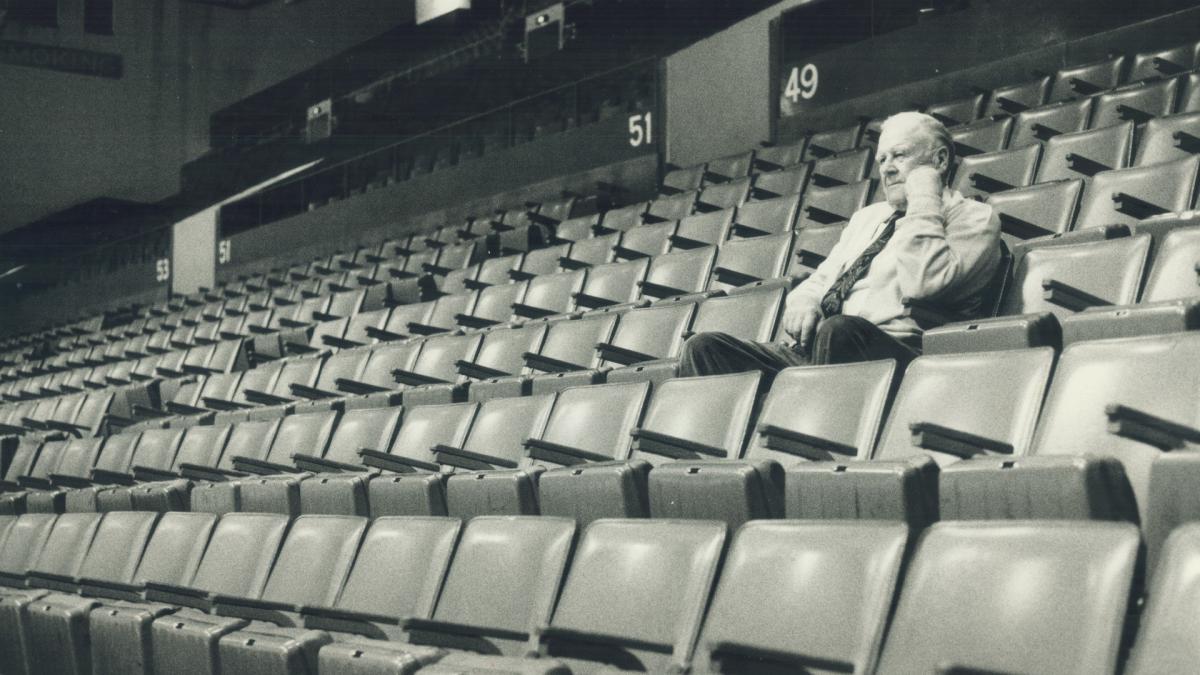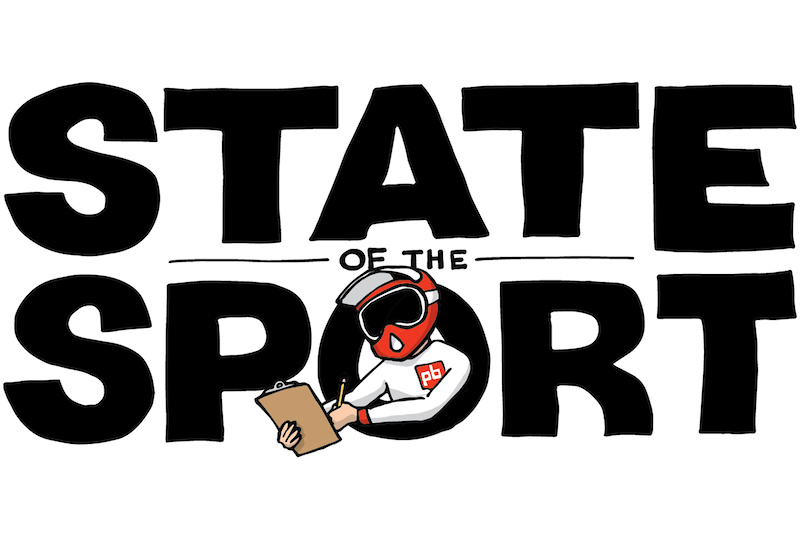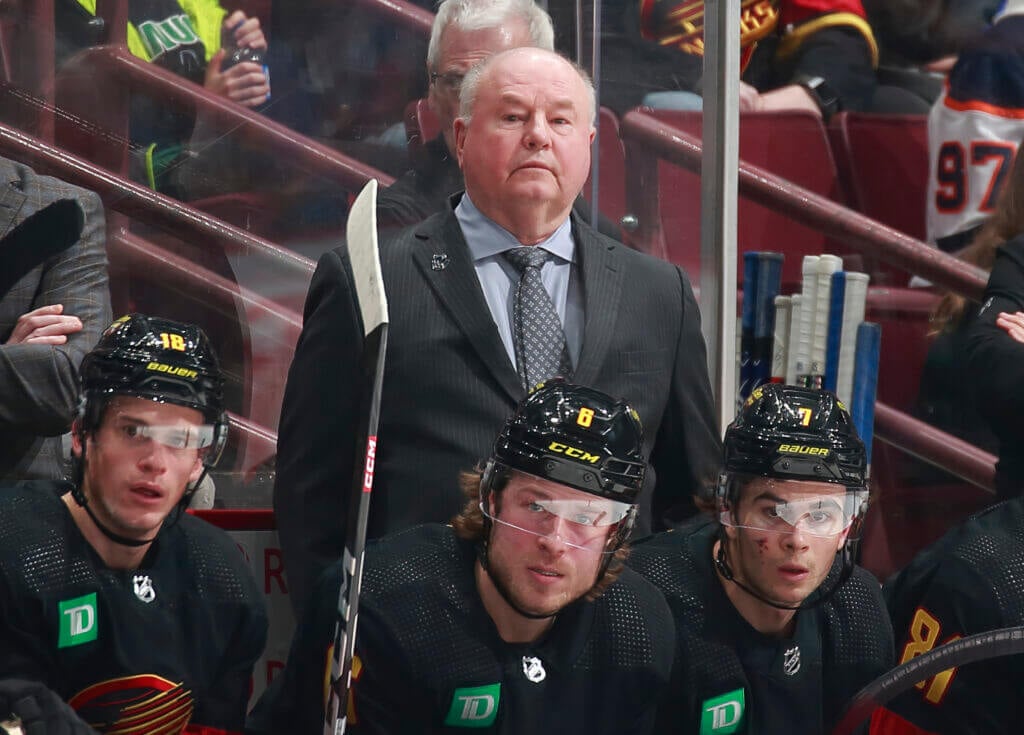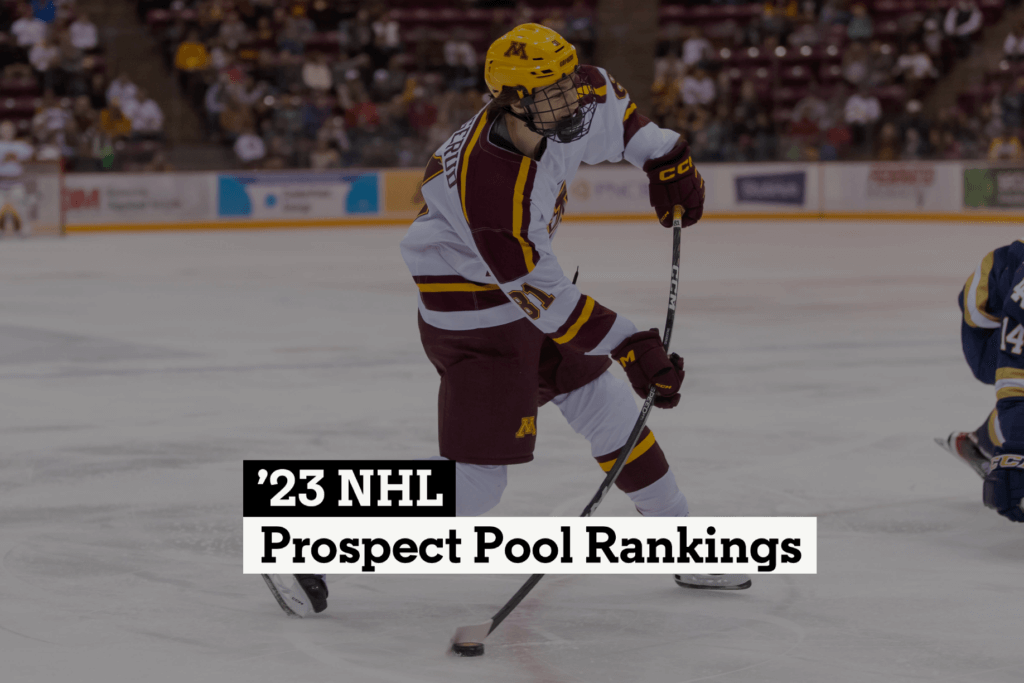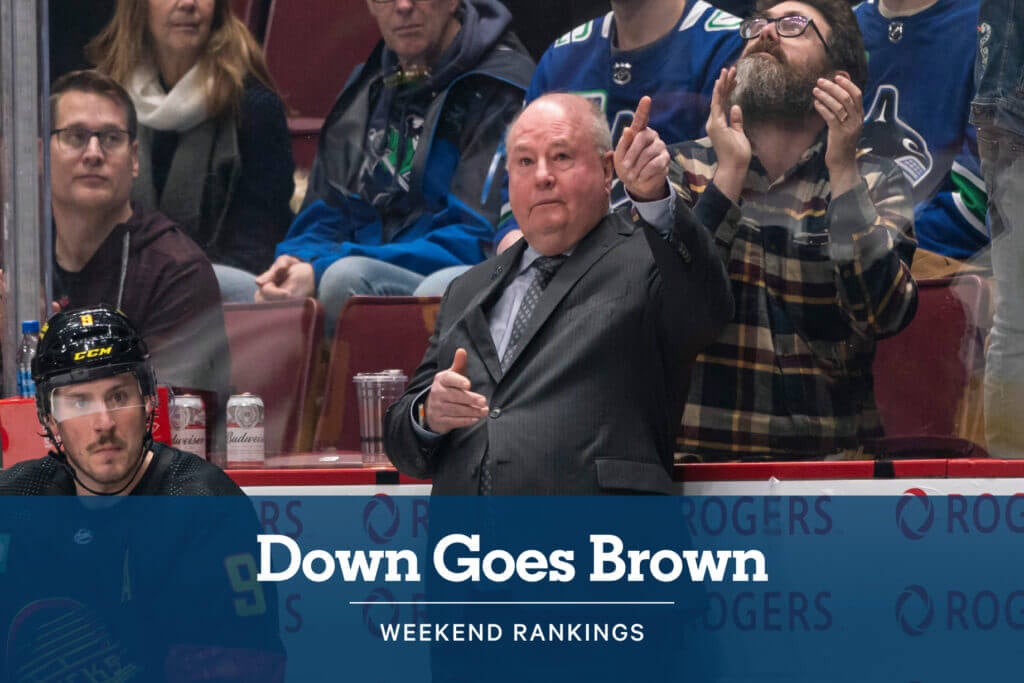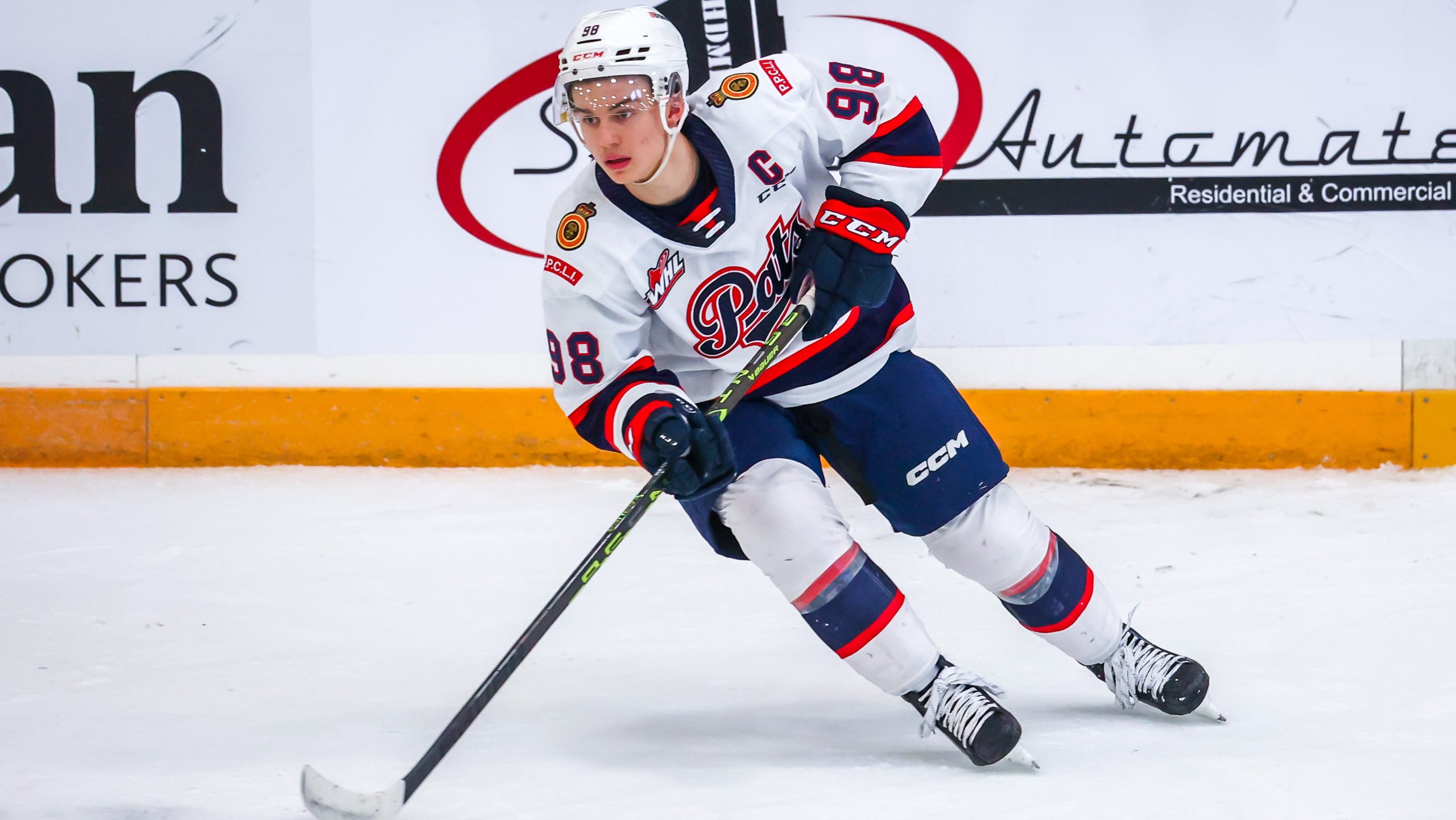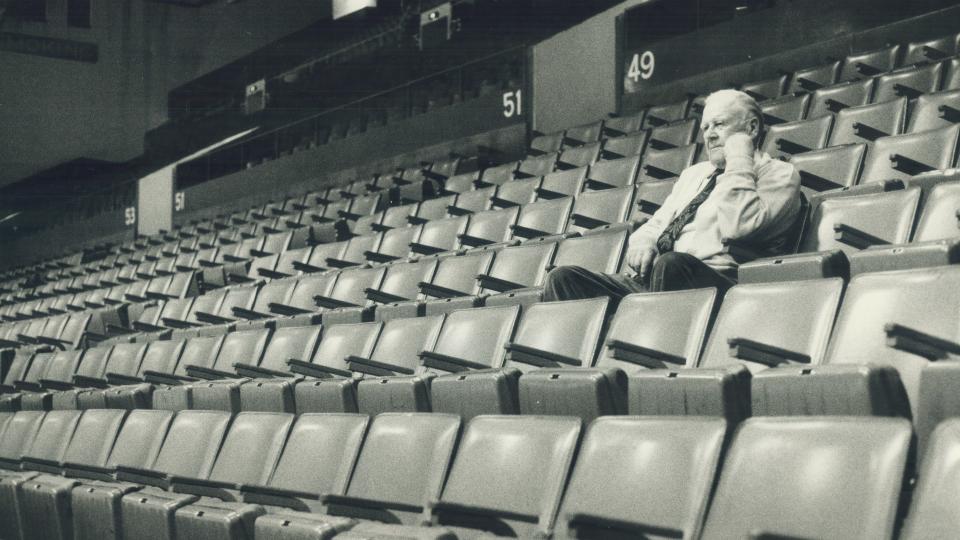
Jason Priestley and Michael Geddes wait eagerly at the elegant Le Germain Hotel in the heart of downtown Toronto, ready to conduct one of several interviews during their press tour for a documentary shedding new light on one of Canada’s most controversial sports figures.
Priestley — best known as iconic heartthrob Brandon Walsh from Beverly Hills, 90210 — is the head of Offside: The Harold Ballard Story, a new project about the bombastic, tyrannical former owner of the Toronto Maple Leafs. The film is scheduled to air Sunday on CBC/CBC Gem, so it’s only natural that Priestley and his executive producer, Geddes, are quick to explain why they’ve taken on a project about such a controversial figure in hockey history.
Ballard is often considered the worst owner in Maple Leafs history. Most hockey fans and historians immediately think of his explosive temper, and he was . So why start a Ballard project in 2023?
“I think looking back at a guy who was very un-Canadian living in Toronto at a time when it was very different, it made for a great story,” Geddes told Yahoo Sports Canada. “He was one of Canada’s greatest characters. People have forgotten Harold Ballard. People of our generation remember him well, but they’ve forgotten him. And I think a whole new generation of people out there now, younger than us, have heard of him just by hearsay. He was larger than life, he had a hell of a story.”
“A lot of the people who actually knew Harold and the people who actually had personal connections with him and stories to tell about him are getting to an age where they’re starting to leave us now,” Priestley added. “So we felt it was important to get their stories on film and put this piece together, before these people are no longer with us.”
Geddes added that Priestley went through an extensive deep dive during the interview process to uncover new information about Ballard that was not previously known to the public.
Ballard made a conscious point of projecting himself as a hard-nosed capitalist devoted solely to the Maple Leafs’ finances, with limited interest in caring about the hardships that other people regularly face. He also hid any charitable initiatives he embarked on from the public; he didn’t want his work with a children’s charity to detract from his self-imposed tough stance.
He died in April 1990 and contemporary society has changed to recognize that racism and sexism are intolerable diseases that we must reckon with. But even in his time, Ballard was known for these abhorrent qualities. As someone who was a young child when Ballard died, am I and others of my generation guilty of judging Ballard’s legacy through a revisionist lens?
“It’s kind of hard to look at Harold Ballard through today’s lens, we’ve talked about this,” Geddes said. “We made this documentary (as) best we could during the time Ballard was alive, which is the ’70s. The locations were very ’70s-esque. I think it’s important to look at him historically in this context and say “now we know why!”
“Things have changed. The league changed its constitution because of owners running out of control. Of course, the vigilance of the league has changed, and the complexity of the league has changed with the players. They’re not just all Canadian kids from Northern Ontario, for example. Ballard didn’t live like that and didn’t understand it and he never would. I think this documentary is good for the younger generation to say “wow, look at how things were run!”
Ballard bought out Stafford Smythe’s shares in the Maple Leafs to become the controlling owner of the franchise when he was 68 years old in 1972. His tenure was defined by some of the worst teams in Maple Leafs history, while their original six contemporaries owned the Montreal Canadiens and Boston Bruins in 1970 -the number. By the end of the decade, Maple Leafs icon Darryl Sittler was in , and fellow legend Borje Salming followed suit, disgusted by the Ballards.
In the 1980s, the Maple Leafs were one of the laughingstocks of the NHL due to their inept performances on the ice, while their star players hated playing for one of the league’s most famous clubs. Priestley shed some light on some of the tactics used by Ballard, who is pissed at how modern franchises work.
“It doesn’t compare to today’s Leafs being run in a much more professional, much more organized, much better way than they were in Harold Ballard’s days. Harold ran the team like a little mom-and-pop organization. He tried to micromanage everything , he tried to control every aspect of the team in a way that was detrimental to the team. So much so that one of the coaches on the team was this guy named Guy Kinnear, who was his boat mechanic from his cabin up in Georgian Bay. Here’s a guy with no medical knowledge, no kinesiology degree. When players asked him for help with their nagging injuries, he gave them packets of Neocitrin! It was absurd what happened!”
Ballard was openly hated by Maple Leafs fans for his frugality, but Priestley claimed that this was never a concern for the owner, given the franchise’s immense popularity.
“I think the fans back then might have loathed Harold Ballard, but you couldn’t get a seat at Maple Leaf Gardens for any of their home games. Maple Leaf Gardens was sold out every home game. They may have hated Ballard, but they still loved their Toronto Maple Leafs. Leafs Nation has lived and thrived for decades. Torontonians around the world love their Leafs. The strength of the Maple Leafs fan base has been the strength of that team, but it was also the only thing Ballard found he could tap into. Although he a team under par, he still figured he could generate revenue from the turnstiles at Maple Leaf Gardens.”
The current iteration of the Maple Leafs has frustrated some factions of the fanbase due to their six consecutive first-round sweeps, despite having a statistical and talent profile that suggests better results are in store. There is a stark contrast between a team that tries to win and a team that doesn’t try at all. The idea of tanking would have been a non-starter in Ballard’s era, either, so the fruits of shameless losing were never apparent.
“I think the fans from back when Ballard had the team realized two things: they had lost confidence and they had lost hope,” Geddes said.
“I think those two things are back. The confidence that money will be used to win and to put the product on the ice with winning clearly in mind. And hope, as much as it’s been 55 years and counting, there’s hope again. I think this documentary for a long time, maybe decades, talks about that, that there was no hope. When you make that bet, when you buy that ticket, you want those two boxes to be checked as one hell. For a long time, they couldn’t provide it—Ballard couldn’t.”
Sports historians are always concerned about whether their work will stand the test of time, but Priestley and Geddes are proud of the widespread interest in the upcoming documentary. And while Ballard may represent a sad part of Maple Leafs history, in some ways it serves as a prologue to brighter days ahead for this current group.
“You get a sense of, ‘is this project going to matter?'” I think we’re finding out the huge interest that this movie is important right now and people are very interested in the premiere on Sunday at CBC, Geddes said. “It had the same interest at the Whistler Film Festival, it was great to debut out there. This exceeded my wildest dreams in terms of support and interest.”
More from Yahoo Sports
#documentary #highlights #controversial #Maple #Leafs #owner #Harold #Ballard
